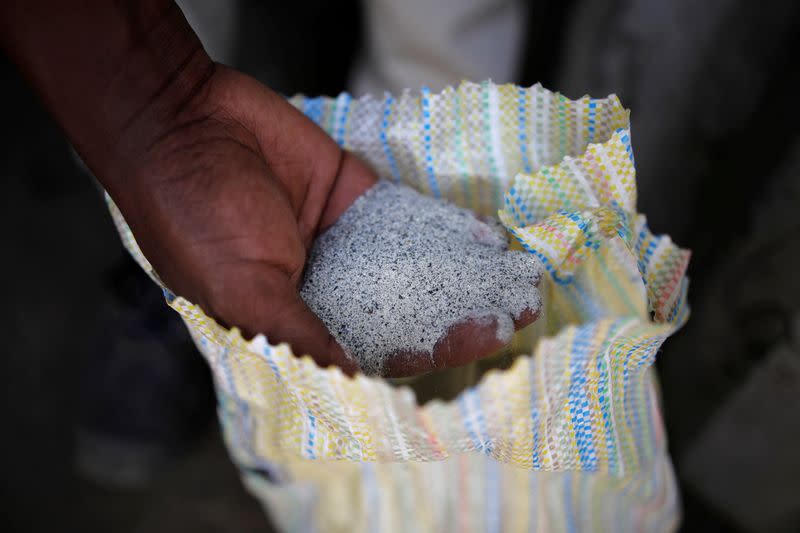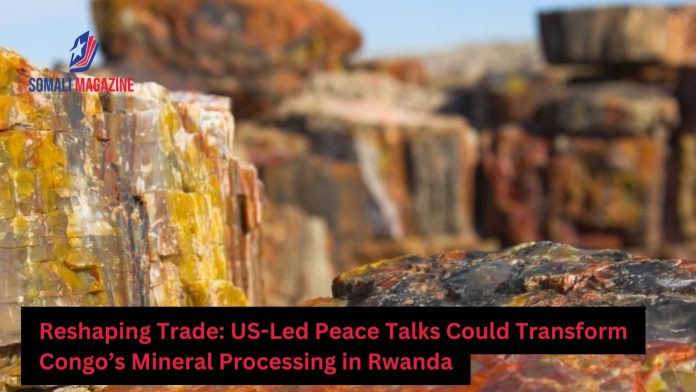Facebook Twitter (X) Instagram Somali Magazine - People's Magazine
The United States is spearheading peace negotiations between the Democratic Republic of Congo (DRC) and Rwanda, aiming to resolve long-standing tensions over mineral exploitation and territorial disputes. The talks, which could lead to a landmark agreement, seek to formalize mineral exports from Congo to Rwanda for processing, a move that could bring billions of dollars in Western investment to the region.
For years, Kinshasa has accused Kigali of illegally smuggling minerals such as tungsten, tantalum, and tin across the border, fueling conflict between Congolese forces and Rwanda-backed M23 rebels. The plundering of Congo’s mineral wealth has been a key driver of instability, with armed groups profiting from illicit mining operations. Washington’s proposed deal aims to create a transparent and regulated mineral trade, reducing incentives for Rwanda to engage in unauthorized extraction while boosting industrialization in Congo.
Massad Boulos, senior adviser for Africa to U.S. President Donald Trump, confirmed that the first draft of the agreement has been shared with both governments. While details remain undisclosed, diplomatic sources suggest that the plan would allow minerals from artisanal mining zones in eastern Congo to be refined and marketed from Rwanda. The U.S. envisions a structured value chain that benefits both nations, ensuring traceability and compliance with international trade standards.

A Congolese official, speaking anonymously, emphasized that no cooperation on minerals can proceed without the withdrawal of Rwandan troops and their proxies, including M23 rebels. Kinshasa insists that Rwanda must respect Congo’s sovereignty over its natural resources before any formal trade agreements can be implemented. Meanwhile, Rwanda stands to gain significantly from the negotiations, as legitimized mineral processing could inject substantial revenue into its economy, transforming a sector that has long operated in the shadows.
The U.S. has framed the initiative as a strategic move to counter China’s dominance in Congo’s mineral sector. By facilitating Western investment, Washington hopes to secure access to critical resources while stabilizing the region. A recent declaration signed in Washington commits both Congo and Rwanda to establishing formalized mineral value chains, linking extraction sites to processing facilities under U.S. oversight.
Despite the potential economic benefits, skepticism remains. Some Congolese officials fear that the agreement could legitimize Rwanda’s influence over Congo’s mineral wealth without addressing deeper geopolitical concerns. Others argue that industrialization efforts must prioritize local processing within Congo rather than outsourcing refining operations to Rwanda.
As negotiations progress, the success of the peace talks will depend on whether both nations can overcome historical grievances and commit to a mutually beneficial framework. The coming months will be crucial in determining whether the U.S.-led initiative can transform mineral trade dynamics in the Great Lakes region or whether entrenched conflicts will derail the process.

